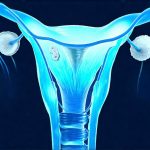Cystitis, commonly known as a urinary tract infection (UTI), is an incredibly common ailment affecting millions of people worldwide, particularly women. While often dismissed as a simple inconvenience treated with antibiotics, the recurring nature of cystitis for some individuals raises questions about underlying causes beyond just bacterial presence. Many women experience repeated episodes, leading to frustration and a search for more holistic explanations – and increasingly, that search leads to considerations around hormonal balance. Understanding the intricate connection between the urinary system, hormonal fluctuations, and overall health is crucial for effectively managing and preventing this often-debilitating condition.
The traditional view of cystitis focuses on bacterial infection as the primary cause, and indeed, E. coli remains the most frequent culprit. However, this doesn’t fully explain why some individuals are prone to recurrent infections while others experience only isolated incidents. The urinary tract’s natural defenses – flushing action of urine, acidity levels, and immune system function – can be compromised by various factors. Hormonal changes, especially those associated with menstruation, pregnancy, perimenopause, and menopause, significantly impact the vaginal microbiome, estrogen levels, and overall immune response, potentially creating a more hospitable environment for bacterial colonization. Therefore, exploring hormonal influences is becoming increasingly important in understanding and addressing chronic or recurring cystitis.
The Role of Estrogen in Urinary Tract Health
Estrogen plays a vital role in maintaining the health and integrity of the urogenital tract. It directly impacts the vaginal microbiome, supporting the growth of Lactobacilli, beneficial bacteria that produce lactic acid and maintain an acidic environment which inhibits harmful bacterial growth. As estrogen levels decline – most notably during perimenopause and menopause – this protective barrier weakens, increasing susceptibility to infection. This decline also leads to thinning of the vaginal and urethral tissues, making them more vulnerable to bacterial adherence and colonization.
Furthermore, reduced estrogen can affect bladder function. The urethra, which drains urine from the bladder, contains estrogen receptors. Lower levels of estrogen can impact the tone and elasticity of the urethral lining, potentially contributing to urinary incontinence and incomplete bladder emptying – both factors that increase the risk of UTI. This creates a vicious cycle: repeated UTIs can further damage the urethral lining, exacerbating the problem as hormonal levels continue to fluctuate. It’s important to note that estrogen’s influence isn’t limited to post-reproductive years; fluctuations during the menstrual cycle can also create temporary periods of increased vulnerability for some individuals.
Finally, it’s not just about quantity of estrogen, but also its metabolism. Different women metabolize estrogen differently, and imbalances in this process can affect overall hormonal health and potentially impact urinary tract susceptibility. Factors like diet, gut health, and liver function all play a role in estrogen metabolism, highlighting the interconnectedness of bodily systems. If you’re experiencing recurring UTIs, it may be worth investigating are utis as a sign of hormonal imbalance in women.
Beyond Estrogen: Other Hormonal Influences
While estrogen is often at the forefront of discussions regarding cystitis and hormonal imbalance, other hormones also exert significant influence. Progesterone, for example, has immunomodulatory effects and can impact the function of immune cells in the urinary tract. Imbalances in progesterone levels, relative to estrogen, can contribute to a weakened immune response and increased susceptibility to infection. Similarly, cortisol, the stress hormone, can suppress immune function when chronically elevated, making it harder for the body to fight off infections.
Thyroid hormones are also crucial. Thyroid dysfunction – both hypothyroidism (underactive thyroid) and hyperthyroidism (overactive thyroid) – can impact immune system function and overall health, indirectly influencing susceptibility to UTIs. An underactive thyroid often leads to decreased energy levels and a weakened immune response, while an overactive thyroid can cause anxiety and stress, potentially compromising the body’s ability to cope with infection.
It’s crucial to remember that hormonal imbalances rarely occur in isolation. Often, multiple hormones are affected simultaneously, creating a complex interplay of factors that contribute to chronic or recurrent cystitis. Addressing these interconnected imbalances requires a holistic approach that considers all aspects of hormonal health. Understanding clear pee as a sign of healing for UTIs can also be helpful in monitoring recovery and overall urinary tract health.
Investigating Hormonal Involvement: What To Discuss with Your Doctor
If you experience recurring cystitis, bringing up the possibility of hormonal involvement during your doctor’s visit is crucial. However, it’s important to be prepared and articulate your concerns effectively. Start by keeping a detailed record of your symptoms – frequency, severity, associated discomfort, and any potential triggers (e.g., after intercourse, during menstruation). This information will help your doctor assess the situation more accurately.
When discussing hormonal factors, specifically mention:
– Your menstrual cycle regularity and any changes you’ve noticed.
– Any perimenopausal or menopausal symptoms you are experiencing.
– Stress levels and coping mechanisms, as chronic stress can significantly impact hormone balance.
– Any other health conditions you have that might influence hormonal function (e.g., thyroid disorders, PCOS).
Your doctor may recommend specific tests to assess your hormonal status, such as blood tests to measure estrogen, progesterone, cortisol, and thyroid hormones. It’s also important to request a urine analysis to confirm the presence of infection and identify any underlying abnormalities. Don’t hesitate to ask about alternative or complementary therapies that might support hormonal balance alongside conventional treatment.
Lifestyle Modifications for Hormonal Support & UTI Prevention
While medical intervention may be necessary to address significant hormonal imbalances, several lifestyle modifications can help support overall hormonal health and reduce the risk of recurrent cystitis. Diet plays a pivotal role: focus on consuming whole, unprocessed foods rich in nutrients that support hormone production and balance, such as healthy fats (avocados, nuts, seeds), lean protein, and plenty of fruits and vegetables. Limit processed sugars, refined carbohydrates, and excessive caffeine, which can disrupt hormonal function.
Stress management techniques, like yoga, meditation, or deep breathing exercises, are essential for regulating cortisol levels and reducing overall stress burden on the body. Maintaining a healthy gut microbiome is also crucial, as the gut plays a significant role in hormone metabolism. Incorporate probiotic-rich foods (yogurt, kefir, sauerkraut) and prebiotic fibers (fruits, vegetables, whole grains) into your diet to support gut health.
Finally, consider hydration. Drinking adequate water helps flush out toxins and bacteria from the urinary tract, reducing the risk of infection. Aim for at least eight glasses of water per day, and avoid bladder irritants like caffeine, alcohol, and spicy foods. If you suspect a weak immune system may be contributing to your recurrent infections, it’s worth exploring cystitis as a sign of a weak immune system.
Natural Remedies & Complementary Therapies
Alongside lifestyle modifications and medical treatment, several natural remedies and complementary therapies may offer support in managing cystitis and promoting hormonal balance. D-mannose, a naturally occurring sugar found in cranberries and other fruits, can help prevent bacteria from adhering to the urinary tract walls, reducing the risk of infection. Cranberry extract (unsweetened) has also been traditionally used for UTI prevention, though its effectiveness is still debated.
Probiotics, specifically those containing Lactobacilli strains, can help restore a healthy vaginal microbiome and strengthen the body’s natural defenses against infection. Herbal remedies like Vitex agnus-castus (chasteberry) may help balance hormonal fluctuations, particularly during perimenopause and menopause, but should be used with caution and under the guidance of a qualified healthcare professional.
It’s important to remember that these remedies are not substitutes for medical treatment and should be discussed with your doctor before use. They can, however, serve as valuable adjuncts to conventional therapies, providing additional support for overall health and well-being. And if you’re concerned about bloating as a sign of bladder problems, it’s best to consult with your physician.





















